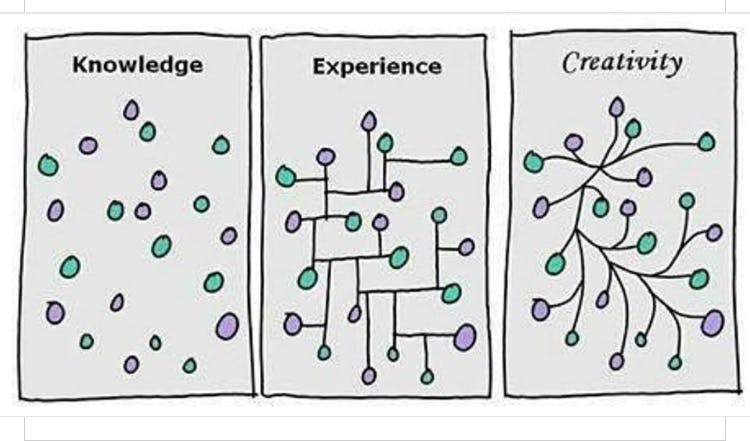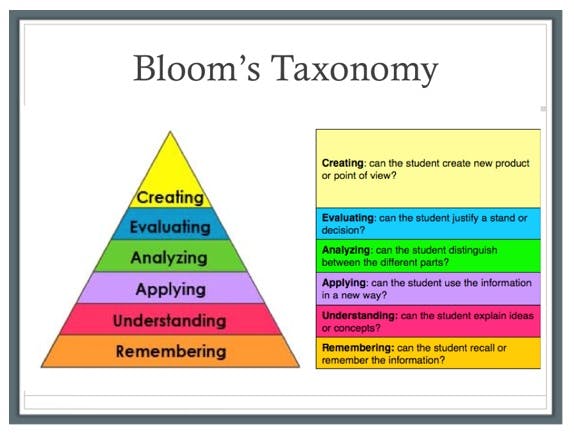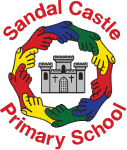Curriculum Intent Statement
Our curriculum offer for all children is rooted in promoting high expectations, a range of thinking skills and knowledge and a lifelong love of learning across all curriculum subjects. Fundamental to this is our determined drive to develop:
- Ambition
Our school provides a broad and balanced curriculum which challenges learners, encourages curiosity and inspires lifelong learning. Bloom’s Taxonomy underpins our learning to ensure an appropriate depth and variety of skills promote aspirations across the curriculum so that our children can discover what they are good at and explore a range of possibilities open to them. We celebrate every aspect of our children and allow our curriculum to evolve to meet the needs and passions of our current and anticipated school community. We take inspiration from both Christian and British Values to provide our children with opportunities to safely challenge the local, wider and global issues faced in modern Britain and to develop informed and democratic opinions and improve their confidence as a valued member of the community. We aim to support them in widening their aspirations and broadening their horizons.
- Creativity
Our school curriculum is creative, inclusive, reflective and collaborative allowing children to develop a range of learning styles. We promote independent learners who are inspired and engaged in their learning through exploration, challenge, and discovery. We value the development and increased awareness of key attributes and roles of society and encourage our children to apply them with depth and understanding across the curriculum. Our children learn to think deeply and reflect imaginatively. The opportunities our curriculum provides ensure that all children have the chances to develop their skills and passions equally. Children have ample opportunity to develop their own voice and an understanding of individual liberty whilst remaining respectful towards others.
- Welfare and Safety
Promoting our childrens personal development and welfare is a key driver behind our curriculum, ensuring that our children develop confident and positive attitudes to their learning. We encourage our children to be collaborative and communicative learners and support our children in exercising effective self – discipline strategies promoting positive and safe learning environments. High quality nurturing supports children and enables them to thrive in their learning and we encourage them to understand and live the Christian and British Values we instil in school. Our curriculum offers our children opportunities to interact sensitively and with understanding of, and respect for, their own needs and those of others. Our curriculum is inspirational, therefore children understand the importance of attending school regularly. Our curriculum equips our children with a mature understanding of online safety, and ensures they establish a thorough understanding of the risks of life in modern Britain and online. Good relationships are built through the delivery of a robust curriculum and as a result, children and staff recognise that keeping children safe is everyone’s responsibility and thus, endeavour to work collaboratively to ensure the safety of the school community.
- Community and Diversity
Our school ensures that our curriculum, including our personal, social and health education and citizenship curriculum systematically teaches our children about all aspects of individual difference and diversity. This includes those related to protected characteristics; appearance, religion, race, gender, sexuality, disability and ability. We include a clear progression that takes account of the age and maturity of children, the current and anticipated intake and adapts as necessary to address particular issues in the wider community. We do this in collaboration with our partner church, St Helen’s and other pillars of faith in our community. We tailor our curriculum’s breadth and balance to celebrate the locality, the people within it but also how we can promote inclusion of both Christian and British Values for an appreciation of and preparation for life in modern Britain ensuring our children develop respectful and tolerant attitudes when interacting in society.
At Sandal Castle Primary School, the quality, breadth and depth of our curriculum ensures that children are open minded, respectful, resilient, tolerant and have empathy when in school and in the wider community. Our school’s vision and its associated values develop aspiration in all children, giving them resilience to cope well when things are difficult and the perseverance to overcome barriers to their own learning and to make positive choices. As a school, we make sure all children have curriculum opportunities to look beyond themselves, ask ‘big questions’ and think globally about life and develop an understanding of disadvantage, deprivation and the exploitation of the natural and human world. This provides opportunities for all children to engage in social action and to understand how they can challenge injustice both now and in the future. Our children are advocates and leaders for positive change. Their behaviour and attitudes to courageous advocacy and social action are recognised both within school and within the community.
We are determined that all children will learn to read, regardless of any barriers to and levels of learning. We place a strong focus on reading and believe that all children need to learn how to read by the end of KS1- marrying both strong phonic knowledge and fluency for comprehension. We believe that knowledge helps to build bridges between what isn’t said and is a key part of teaching our children to be reading comprehenders. Our teaching of phonics across school is fundamental to the progress of all children, regardless of their starting points. We believe that it is important that all children become fluent readers and as a result, reading is always our first, foremost and central ongoing priority. Because of this, children will have the skills and knowledge to access the wider curriculum. A crucial part of this is to inspire a love of reading. A range of texts and genres are shared and used daily as part of functional reading lessons but also as part of timetabled ‘story time’ across school- this is integral to our approach to whole school reading. We foster a love of reading across the curriculum as it is our upmost priority. Our teachers read to children every day, sometimes to challenge and often purely for pleasure. Reading aloud and storytelling are skills we develop and value highly amongst our body of staff. Learning to read so we can read to learn and gain pleasure is at the heart of all areas of the curriculum. Books are enjoyed and used across all curriculum areas as highly valued hooks, tools and a way of escaping in to other worlds, times, places and situations.
The school curriculum is planned and sequenced so that new knowledge and skills build on what has been taught before, working towards defined end points. From the beginning of their educational journey with us, we focus upon ensuring that all children have embedded basic skills in English and Maths so they are able to read, write and use mathematical knowledge, ideas and operations in a variety of contexts and situations. A clear emphasis is placed upon those children who struggle so that they can catch up quickly.
Year group teams are responsible for deciding the order in which units of work will take place. Teachers use Bloom’s Taxonomy to plan sequences of learning which develop knowledge and skills effectively and with depth and meaning. Learning journeys include the teaching of key, powerful knowledge, the development of this knowledge through the application and use of a variety of key skills, the use of big questions and provocative statements which allow children to work with purpose, explore challenging themes and develop not only key skills as learners but also their role as active, global citizens who have an awareness of how key knowledge and skills can be applied across the curriculum and how they shape our world around us. Units of work are planned and opportunities to respond in a variety of ways including through data, writing and more creative approaches. Learning opportunities are practical and active where possible to deepen learning experiences. Retention strategies are built into learning journeys so that powerful knowledge is remembered. Our retention strategies interrupt forgetting- so that the knowledge and skills we teach are ‘sticky’. We ensure that we give our children knowledge to think WITH. We believe that children can’t think with something they don’t have but with key knowledge, thinking skills can be deepened and explored. We provide meaningful cognitive activities for our children, ensuring that our curriculum doesn’t overload with knowledge but at the same time ensuring it is challenging enough to commit to long term memory. Knowledge can’t empower if it is forgotten. We plan carefully so that knowledge forms cohesive links horizontally, vertically and diagonally across the curriculum. Learning journeys for all subjects make cross curricular links where relevant and purposeful, either through content or the use of overarching skill sets.Links to current affairs are made where appropriate so that children can see that their actions and responses to our modern world and challenging global can be purposeful and meaningful.
Our Curriculum...

Year Group Curriculum Overview 2022 -2023
Year 6 Curriculum Overview 2022 - 2023
Our Curriculum and Bloom's Taxonomy
The principles of Bloom’s Taxonomy underpin all of our learning at Sandal Castle Primary School. Bloom’s taxonomy provides a structure for higher level and deeper thinking skills, ensuring that our children are fluent and independent learners across the curriculum, that they can apply their knowledge and understanding in a variety of ways and broaden their comprehension across a range of contexts.

This approach to learning means that our children are competent and active participants of our curriculum rather than simply being passive spectators. They are Historians, Geographers, Writers, Readers, Mathematicians, Philosophers, Artists, Musicians, Sports People and over all, they are THINKERS!
Sandal Castle Primary
Our school provides a broad and balanced curriculum which challenges learners, encourages curiosity and inspires lifelong learning. We celebrate every aspect of our children and allow our curriculum to evolve to meet the needs and passions of our current and anticipated school community. We have thought carefully about our curriculum design to ensure that its structure and implementation builds pupils’ knowledge over time.
Our school curriculum is creative, inclusive, reflective and collaborative allowing children to develop a range of skills, attributes and qualities. We promote independent learners who are inspired and engaged in their learning through exploration, challenge and discovery. Our children learn to think deeply and reflect imaginatively. The opportunities our curriculum provides ensure that all children have the chance to develop their skills and passions equally. Children have maximum opportunity to develop their own voice and an understanding of individual liberty whilst remaining respectful towards others.
Whilst members of our school community, all children will undertake a series of life experiences designed to promote greater awareness of local, wider and global issues faced in modern Britain and to develop informed and democratic opinions and improve their confidence as a valued member of the community.

